
Shawmari Wildlife Reserve: A Haven for Endangered Species in Jordan
Nestled in the heart of Jordan, the Shawmari Wildlife Reserve is a sanctuary dedicated to the preservation of endangered species. Established in 1975 by the Royal Society for the Conservation of Nature, this reserve spans over 22 square kilometers of arid land, offering a unique glimpse into the natural habitat of some of the world's rarest animals. The reserve plays a crucial role in breeding and reintroducing species such as the Arabian oryx, ostriches, gazelles, and onagers. Visitors to Shawmari Wildlife Reserve can embark on guided tours that take them through the reserve's diverse landscapes, from sandy dunes to lush oases. These tours often provide opportunities to observe wildlife up close and learn about the conservation efforts that have helped bring many species back from the brink of extinction. The reserve is also home to a visitor center that offers educational exhibits and interactive displays, making it an enriching experience for both adults and children. Aside from its wildlife, the Shawmari Wildlife Reserve is a fantastic spot for bird watching. The reserve attracts a variety of bird species, making it a paradise for ornithologists and nature enthusiasts alike. The tranquil environment and pristine beauty of the landscape provide a perfect backdrop for a day of exploration and relaxation. Whether you're an avid wildlife lover or just looking to connect with nature, Shawmari Wildlife Reserve offers an unforgettable experience that showcases the natural beauty and biodiversity of Jordan.
Local tips in Shawmari Wildlife Reserve
- Visit during the cooler months (October to April) to avoid the extreme heat.
- Book guided tours in advance to ensure availability and get the most informative experience.
- Bring binoculars for bird watching and spotting distant animals.
- Wear comfortable walking shoes and bring sunscreen, hats, and plenty of water.
- Check the reserve's opening hours and any seasonal restrictions before planning your visit.
Shawmari Wildlife Reserve: A Haven for Endangered Species in Jordan
Nestled in the heart of Jordan, the Shawmari Wildlife Reserve is a sanctuary dedicated to the preservation of endangered species. Established in 1975 by the Royal Society for the Conservation of Nature, this reserve spans over 22 square kilometers of arid land, offering a unique glimpse into the natural habitat of some of the world's rarest animals. The reserve plays a crucial role in breeding and reintroducing species such as the Arabian oryx, ostriches, gazelles, and onagers. Visitors to Shawmari Wildlife Reserve can embark on guided tours that take them through the reserve's diverse landscapes, from sandy dunes to lush oases. These tours often provide opportunities to observe wildlife up close and learn about the conservation efforts that have helped bring many species back from the brink of extinction. The reserve is also home to a visitor center that offers educational exhibits and interactive displays, making it an enriching experience for both adults and children. Aside from its wildlife, the Shawmari Wildlife Reserve is a fantastic spot for bird watching. The reserve attracts a variety of bird species, making it a paradise for ornithologists and nature enthusiasts alike. The tranquil environment and pristine beauty of the landscape provide a perfect backdrop for a day of exploration and relaxation. Whether you're an avid wildlife lover or just looking to connect with nature, Shawmari Wildlife Reserve offers an unforgettable experience that showcases the natural beauty and biodiversity of Jordan.
When is the best time to go to Shawmari Wildlife Reserve?
Iconic landmarks you can’t miss
Shaumari Wildlife Reserve
Discover the natural beauty of Shaumari Wildlife Reserve, a sanctuary for wildlife and a paradise for nature lovers in Jordan.
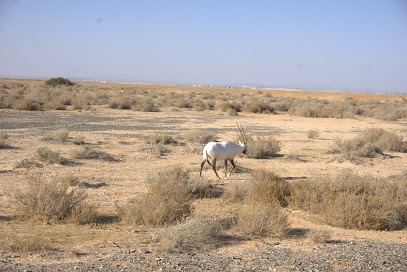
La réserve de Shaumari
Explore La Réserve de Shaumari, a breathtaking nature preserve in Azraq, Jordan, where wildlife thrives and nature's beauty unfolds.
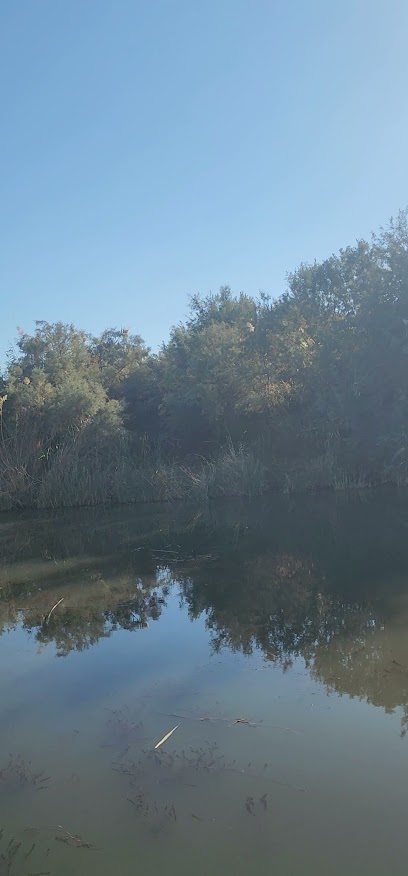
Unmissable attractions to see
Qasr Al-Mushatta
Discover the majestic Qasr Al-Mushatta, a historical landmark that showcases the exquisite Umayyad architecture and rich heritage of Jordan.
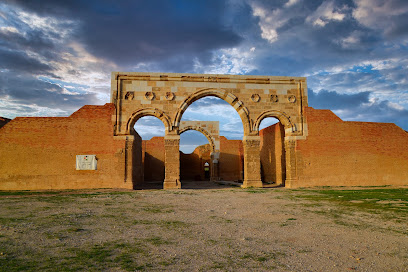
Al Kalha Stairs
Explore the historical Al Kalha Stairs in Amman, where culture and history converge amidst stunning views.
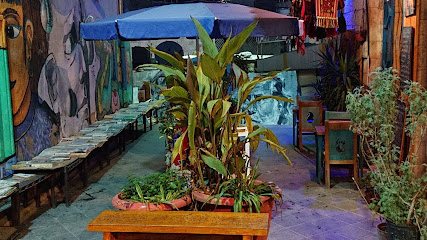
الذهيبه ألغربيه
Discover the historical and natural wonders of Al-Zahra in Amman, Jordan, a must-visit tourist attraction rich in culture and breathtaking views.
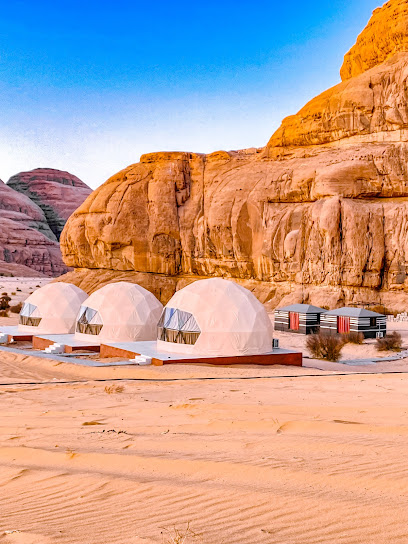
منتزة وحديقة الازرق العامة
Experience the serenity of Al Azraq Public Park, a perfect escape in the heart of nature, ideal for relaxation, picnics, and family fun.
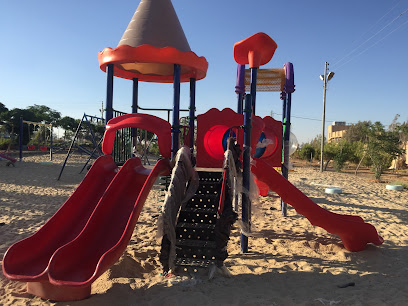
Shaumari Wildlife Reserve - Visitor Center
Explore the Shaumari Wildlife Reserve Visitor Center for an immersive experience in wildlife conservation and biodiversity in Jordan.
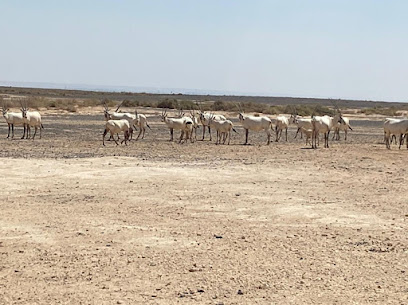
Qasr AlQastal
Explore Qasr AlQastal, a historical landmark in Amman, Jordan, and immerse yourself in the rich cultural heritage and stunning architecture of the Umayyad period.
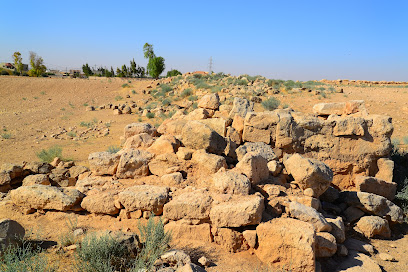
Qasr Uweinid
Explore Qasr Uweinid: A historical landmark in Azraq, Jordan, revealing the echoes of a rich past amidst stunning desert landscapes.
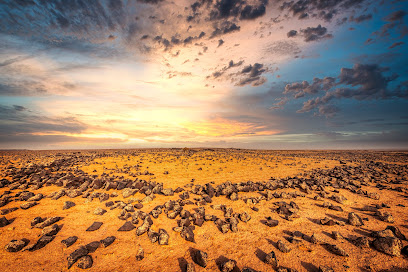
Mango Street Stairs
Experience the vibrant art and stunning views at Mango Street Stairs, a colorful urban attraction in the heart of Amman, Jordan.
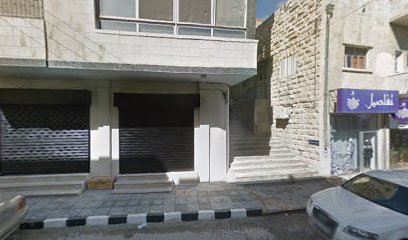
Wāḩat al Azraq
Discover the serene beauty and rich biodiversity of Wāḥat al Azraq, a stunning nature preserve in Jordan perfect for wildlife enthusiasts and adventurers.
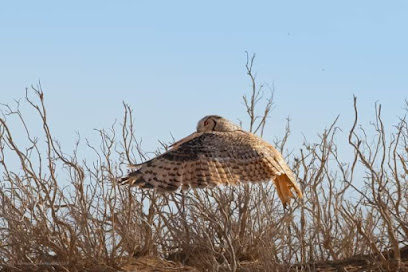
تلول ضواين
Discover the hidden gem of Talul Dhwayn in Jordan, where ancient history meets stunning natural beauty in an unforgettable experience.
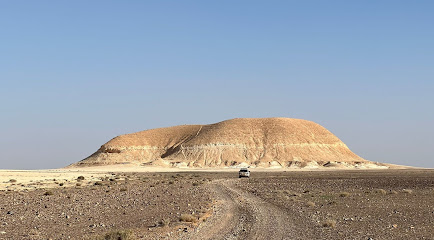
Jordanian Poetry House
Discover the heart of Jordanian culture at the Jordanian Poetry House, where poetry comes alive in the vibrant city of Amman.

La réserve de Shaumari
Explore the natural beauty and rich biodiversity of La réserve de Shaumari, a unique nature preserve near Azraq, Jordan, perfect for wildlife enthusiasts.
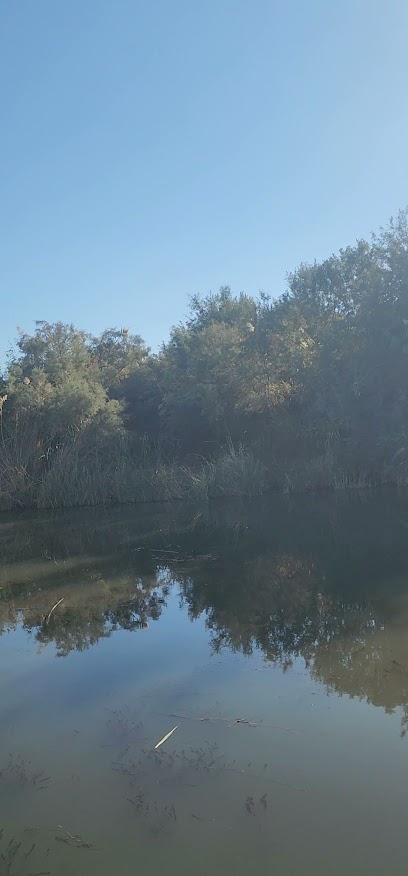
Jordan Wheel
Experience the rich history and stunning views at the Jordan Wheel, a must-visit archaeological site in Dayr Al Kahf, Jordan.
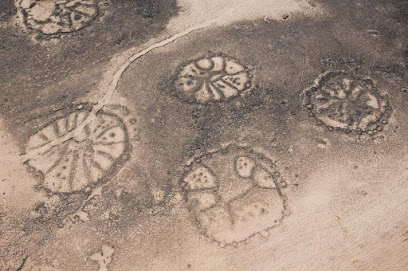
Lara farm jordan
Experience the beauty and tranquility of Lara Farm in Rihab, Jordan—a unique tourist attraction celebrating agriculture and nature.
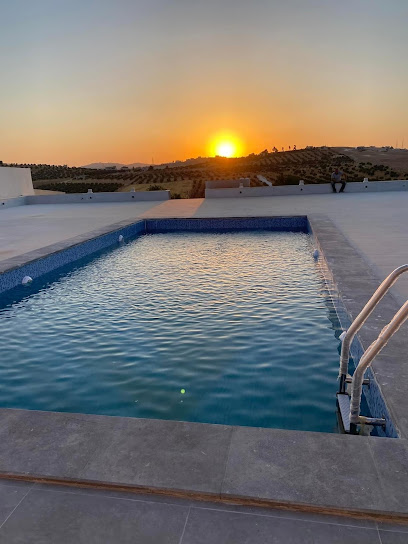
نبع الماء الأساطير
Explore the natural beauty of the Spring of Water Al-Asatir in Jordan, a serene tourist attraction perfect for nature enthusiasts and cultural explorers.

Essential places to dine
Tawaheen AlHawa
Discover the essence of Jordanian cuisine at Tawaheen AlHawa in Amman - where tradition meets flavor in an unforgettable dining experience.
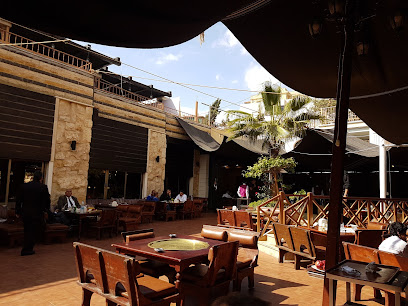
Wild Jordan Center
Experience authentic Jordanian cuisine and culture at Wild Jordan Center - your gateway to Amman's vibrant culinary scene.
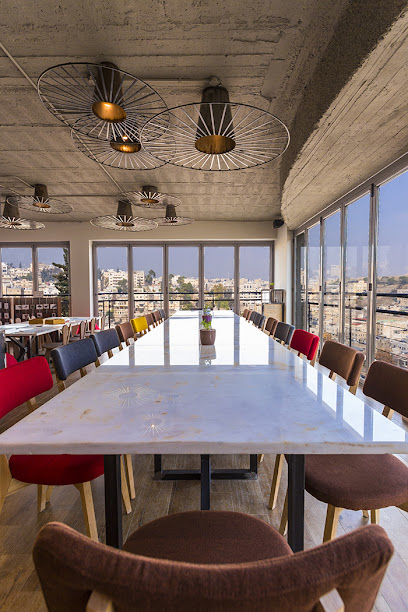
Buffalo Wings & Rings - Dead Sea
Enjoy delectable chicken wings and American favorites at Buffalo Wings & Rings while soaking in stunning views of the Dead Sea.
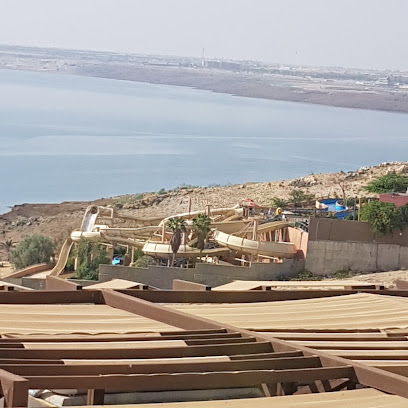
Zuwar Restaurant
Experience exquisite Jordanian cuisine at Zuwar Restaurant in Amman - where tradition meets elegance.
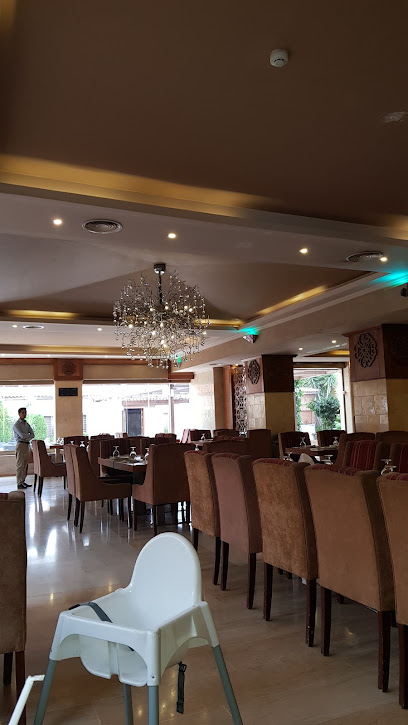
Umm Qais Rest House
Discover authentic Jordanian cuisine with breathtaking views at Umm Qais Rest House, where every meal tells a story.
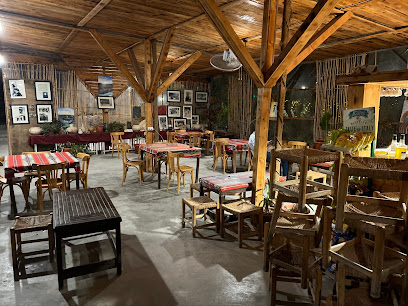
Carob House بيت الخروب
Discover authentic Jordanian flavors amidst lush gardens at Carob House in Madaba – an unforgettable culinary experience awaits you.
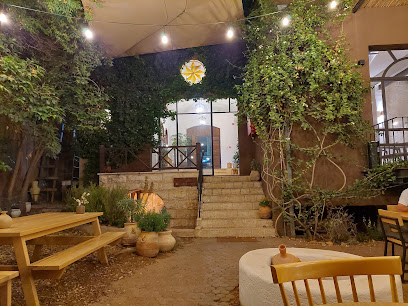
Beit Sweimeh بيت سويمة
Experience authentic Jordanian cuisine at Beit Sweimeh - a charming restaurant nestled by the beautiful Dead Sea.
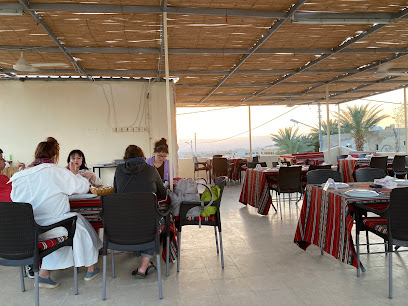
Shaumari Wildlife Reserve
Explore Shaumari Wildlife Reserve: A stunning national park in Jordan where nature thrives amidst breathtaking landscapes.
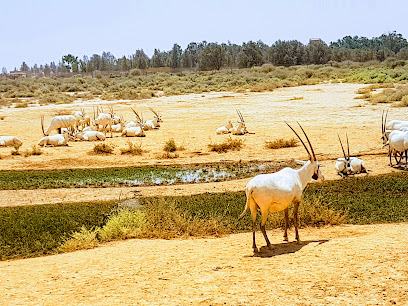
Roberto's Amman
Discover Roberto's Amman: An authentic Italian dining experience blending tradition with modern flair in Jordan's vibrant capital.
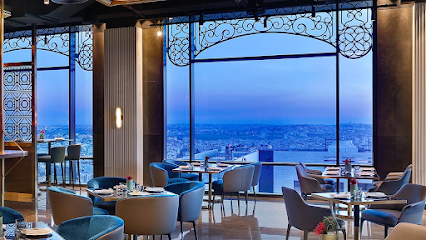
IL Terrazzo Restaurant
Discover authentic Italian cuisine at IL Terrazzo Restaurant in Amman - where every meal is a culinary masterpiece.

R.B Restaurant & Pub
Discover the vibrant flavors of Jordan at R.B Restaurant & Pub in Amman - where tradition meets modern culinary artistry.
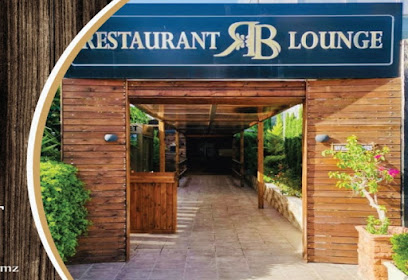
Brick Lane Restaurant Dead Sea
Discover exquisite Middle Eastern cuisine with stunning views at Brick Lane Restaurant near the breathtaking Dead Sea.

Ajloun Forest Reserve Restaurant
Experience exquisite dining surrounded by nature at Ajloun Forest Reserve Restaurant – where culinary delights meet breathtaking landscapes.
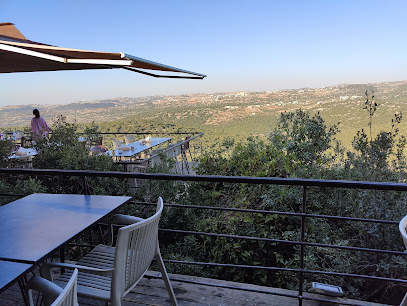
Oak Tree Kitchen
Discover exquisite dining at Oak Tree Kitchen in Swemeh - where local flavors meet stunning views of the Dead Sea.
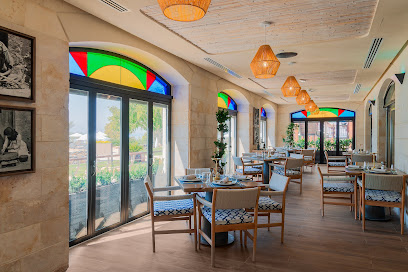
Hamlet's Restaurant
Experience exquisite Jordanian cuisine at Hamlet's Restaurant in Amman – where flavors come alive in a warm and inviting setting.
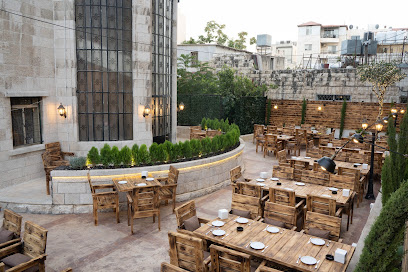
Markets, malls and hidden boutiques
Shaumari Wildlife Reserve
Discover the breathtaking landscapes and diverse wildlife at Shaumari Wildlife Reserve, a serene national park in Jordan perfect for nature lovers and adventurers.
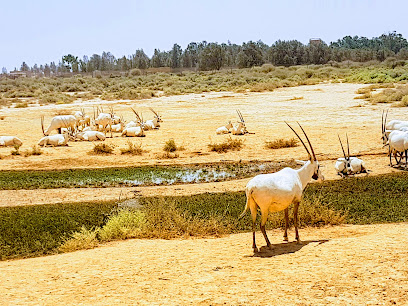
محلات المسافر
Discover the authentic tastes of Jordan at محلات المسافر, a vibrant grocery store in Azraq offering local products and fresh produce.

Essential bars & hidden hideouts
California 101 restaurant
Discover the rich flavors of Jordanian cuisine at California 101 Restaurant in Azraq, a must-visit culinary destination for every traveler.
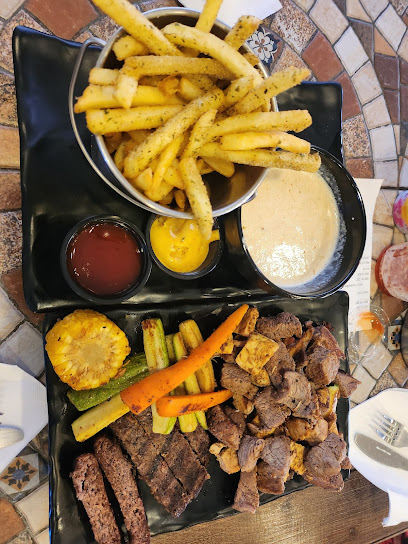
Food Station
Experience the best of American cuisine at Food Station in Azraq, where delicious flavors and a welcoming atmosphere await every visitor.

76 Brew Cafe
Discover a delightful American dining experience at 76 Brew Cafe in Azraq, where comfort food meets warm hospitality.

The Zone
Experience the best of local and international cuisine at The Zone, Azraq's premier dining destination offering a warm ambiance and outstanding service.

Shaumari Wildlife Reserve - Playground
Explore the serene Shaumari Wildlife Reserve, a nature lover's paradise showcasing wildlife and stunning landscapes in the heart of Jordan.
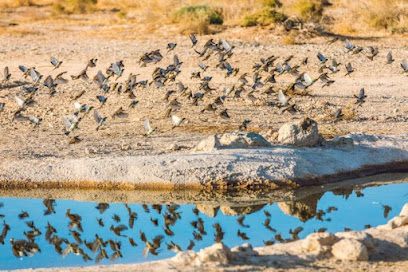
Local Phrases about Shawmari Wildlife Reserve
-
- HelloMarhaba
[mar-ha-ba] - GoodbyeMa'a as-salama
[ma-a as-sa-la-ma] - YesNa'am
[na-am] - NoLa
[la] - Please/You're welcomeMin fadlik
[min fad-lik] - Thank youShukran
[shuk-ran] - Excuse me/SorryAsef
[a-sef] - How are you?Kif halak?
[keef ha-lak] - Fine. And you?Mniih. Wa inta?
[m-nee-h. wa in-ta] - Do you speak English?Tatakallam ingiliizi?
[ta-ta-kal-lam in-gi-lee-zi] - I don't understandAna ma fahim
[a-na ma fa-him]
- HelloMarhaba
-
- I'd like to see the menu, pleaseBidii araa alqaa'ima, min fadlik
[bi-dee a-ra al-qa-a-i-ma, min fad-lik] - I don't eat meatAna ma akul laHm
[a-na ma a-kul la-ham] - Cheers!Saha
[sa-ha] - I would like to pay, pleaseBidii an adfa', min fadlik
[bi-dee an ad-fa, min fad-lik]
- I'd like to see the menu, pleaseBidii araa alqaa'ima, min fadlik
-
- Help!Musaidni!
[mu-said-ni] - Go away!Irhal!
[ir-hal] - Call the Police!Itsal bilshurtah!
[it-sal bil-shur-tah] - Call a doctor!Itsal biTabib!
[it-sal bi-ta-beeb] - I'm lostAnaa Dhaai'
[a-naa dhaa-ee] - I'm illAnaa mareed
[a-naa ma-reed]
- Help!Musaidni!
-
- I'd like to buy...Bidii ashtari...
[bi-dee ash-ta-ri] - I'm just lookingAna faqat atafa'al
[a-na fa-qat a-ta-fa-al] - How much is it?Kam thamanuh?
[kam tha-ma-nooh] - That's too expensiveDhalik ghali jiddan
[dha-lik gha-li jid-dan] - Can you lower the price?Hal tastati' tanzil althaman?
[hal tas-ta-tee tan-zeel al-tha-man]
- I'd like to buy...Bidii ashtari...
-
- What time is it?Kam alsaa'ah?
[kam al-saa-a] - It's one o'clockHuwa alwaHidah
[hu-wa al-wa-hi-dah] - Half past (10)Nusf (ashra)
[nusf (ash-ra)] - MorningSabaah
[sa-baah] - AfternoonBa'd alDhuhr
[ba'd al-dhuhr] - EveningMasaa'
[ma-saa-a] - Yesterdayams
[am-s] - Todayalyawm
[al-yawm] - Tomorrowghadan
[gha-dan] - 1wahid
[wa-hid] - 2ithnayn
[ith-na-yn] - 3thaltha
[thal-tha] - 4arba'a
[ar-ba-a] - 5khamsa
[kham-sa] - 6sitta
[sit-ta] - 7saba'a
[sa-ba-a] - 8thamania
[tha-ma-nia] - 9tis'a
[tis-a] - 10ashara
[ash-ra]
- What time is it?Kam alsaa'ah?
-
- Where's a/the...?Ayna al...
[ay-na al] - What's the address?Maa huwa al'adresse?
[maa hu-wa al-ad-res-se] - Can you show me (on the map)?Hal tastati' an tuuriyanii (alaa alkhariTah)?
[hal tas-ta-tee an tu-ree-ya-nee (alaa al-kha-rit-tah)] - When's the next (bus)?Mataa sayakoon alqadhii alqadim?
[ma-taa sa-ya-koon al-qa-dhee al-qa-dim] - A ticket (to ....)Tathkiirah (ila ....)
[ta-th-kee-rah (e-la)]
- Where's a/the...?Ayna al...
History of Shawmari Wildlife Reserve
-
The Shawmari Wildlife Reserve was established in 1975 by the Royal Society for the Conservation of Nature (RSCN). The primary aim was to create a breeding center for endangered or locally extinct wildlife, such as the Arabian Oryx, Persian Onager, and Gazelle. The reserve spans approximately 22 square kilometers and represents a significant effort in preserving Jordan's natural heritage.
-
One of the most notable achievements of the Shawmari Wildlife Reserve is the successful reintroduction of the Arabian Oryx. Once extinct in the wild due to hunting and habitat loss, the Arabian Oryx was reintroduced to the reserve in 1978. The breeding program at Shawmari has been highly successful, and the reserve has become a model for similar conservation efforts worldwide.
-
Another significant project at the Shawmari Wildlife Reserve is the conservation of the Persian Onager, a type of wild ass that faced the threat of extinction. The reserve has been instrumental in breeding and maintaining a healthy population of Persian Onagers, contributing significantly to the global efforts to save this rare species. The project has helped raise awareness about the importance of conserving lesser-known species.
-
Shawmari Wildlife Reserve is not only a haven for wildlife but also a center for education and ecotourism. The reserve offers guided tours, educational programs for schools, and workshops on wildlife conservation. These initiatives aim to foster a deeper understanding and appreciation of Jordan's natural environment among locals and visitors alike.
-
The Royal Society for the Conservation of Nature (RSCN) has played a pivotal role in the establishment and maintenance of Shawmari Wildlife Reserve. The RSCN's efforts in wildlife conservation, habitat restoration, and community engagement have been crucial in ensuring the success of the reserve. Their work has also inspired other conservation projects within Jordan and the broader Middle East region.
-
Shawmari Wildlife Reserve is home to a diverse range of flora and fauna. The arid landscape supports various plant species adapted to the harsh conditions, while the reserve's wildlife includes not only the Arabian Oryx and Persian Onager but also desert gazelles, ostriches, and a variety of bird species. This biodiversity makes Shawmari a unique and valuable ecological site in Jordan.
Shawmari Wildlife Reserve Essentials
-
Shawmari Wildlife Reserve is located in the eastern part of Jordan, near the town of Azraq. The nearest international airport is Queen Alia International Airport in Amman, approximately 100 kilometers away. From Amman, you can rent a car or take a taxi to Azraq, which typically takes around 1.5 to 2 hours by road. Public buses also operate from Amman to Azraq, but they may be less frequent. It is advisable to check the bus schedules in advance.
-
Within the Shawmari Wildlife Reserve, most of the exploration is done on foot or through guided tours in 4x4 vehicles provided by the reserve. Outside the reserve, taxis are available in Azraq for local transportation. Renting a car is a convenient option for those looking to explore the surrounding areas at their own pace. Biking is another eco-friendly option for getting around the reserve and its nearby areas.
-
The official currency in Jordan is the Jordanian Dinar (JOD). Credit cards are accepted at most hotels and some restaurants in Azraq, but it is advisable to carry cash, especially for entry fees and smaller purchases within the reserve. There are ATMs available in Azraq, but it’s wise to withdraw sufficient cash before heading into the reserve.
-
Shawmari Wildlife Reserve and the surrounding areas are generally safe for tourists. However, it is always advisable to take standard precautions, such as not leaving personal belongings unattended and being cautious when walking alone at night. While the region does not have specific high-crime areas targeting tourists, it is always best to stay vigilant and aware of your surroundings.
-
In case of an emergency, dial 911 for immediate assistance. There are medical facilities available in Azraq for minor health issues. It is recommended to have travel insurance that covers medical emergencies. For minor health concerns, there are pharmacies in Azraq where you can purchase over-the-counter medications. The reserve staff is also trained to handle basic first-aid situations.
-
Fashion: Do dress modestly, especially when visiting local towns and religious sites. Avoid wearing revealing clothing. Religion: Do respect local customs and traditions. Public Transport: Do be respectful and give up your seat to elderly passengers. Don't eat or drink on public transport. Greetings: Do greet people with a handshake, and use your right hand for greetings and eating. Eating & Drinking: Do try local delicacies and accept food offerings graciously. Don’t refuse hospitality, as it is considered impolite.
-
To experience Shawmari Wildlife Reserve like a local, participate in guided tours led by local experts who can share in-depth knowledge about the wildlife and conservation efforts. Engage with the reserve staff and local residents to learn about the history and culture of the area. Don't miss visiting the nearby Azraq Wetland Reserve, which offers a contrasting ecological experience and is home to a variety of bird species. For a unique local experience, try the traditional Jordanian dish 'Mansaf' at a local restaurant in Azraq.
Nearby Cities to Shawmari Wildlife Reserve
-
Things To Do in Amman
-
Things To Do in Mafraq
-
Things To Do in Madaba
-
Things To Do in Jerash
-
Things To Do in Salt
-
Things To Do in Kerak
-
Things To Do in Dead Sea
-
Things To Do in Irbid
-
Things To Do in Ein Gedi
-
Things To Do in Masada
-
Things To Do in Umm Qais
-
Things To Do in Beit She'an
-
Things To Do in Jerusalem
-
Things To Do in Bethlehem
-
Things To Do in Tafilah








